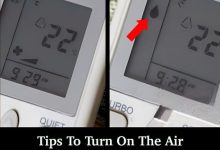
It’s still a great cleaner
There are few things baking soda can’t do. It’s a great multipurpose cleaner and you can use it when you cook, to heal ailments, clean the house and even to make crafts for your kids. But there are some instances where baking soda causes more harm than good. While it can help you with most of your chores around the house, make sure avoid using it when cleaning these products.
Glass
You’re going to want to stick with Windex when cleaning glass surfaces in your house. “Baking soda is an abrasive cleaner, so there is a chance that it will scratch your glass or mirror,” says Marcos Franco, an employee of Mighty Clean Home. If you’re looking for an all-natural cleaning substance, he suggests using vinegar on your glass surfaces instead.

Aluminum
It’s OK to use baking soda to clean your aluminum pots and pans, but it’s just important to remember to rinse them right after. “Baking soda can cause aluminum to oxidize,” says Jack Prenter, founder of Chore Bliss. “Extensive contact will cause oxidization which will turn the surface brown.”

Ceramic stove top
Baking soda is great to use when cleaning cooktops but avoid using it if you have a smooth top made of ceramic glass. “It can easily scratch the cooktop and leaves a white film that is hard to remove,” says Franco. If you accidentally use baking soda, vinegar will remove the white film.

Marble
You should never use baking soda to clean any marble or quartz surfaces. Over time, baking soda will cause damage to the upper protective layer and eventually leave scratches on the marble or quartz. “Some websites recommend using baking soda on these surfaces, but stone manufacturers warn against it because they realize the potential damage that can be caused in the long run,” says Prenter.

Wood furniture
Baking soda can be too hard on some finishes or sealants on wood furniture. Cameron says that using it for cleaning can wear away the sealant, ruining the furniture. She suggests using a diluted dish soap mixture instead.

Antique silver
“Although submerging your silverware in water and baking soda can quickly remove tarnish from it, the mixture is too abrasive and can cause it to lose its patina and tarnish more quickly afterward,” says Lily Cameron, cleaning supervisor at Fantastic Services.

Anything with deep grooves or cracks
Baking soda leaves behind a white, dusty residue after it dries. Therefore, you shouldn’t use it to clean surfaces with deep grooves or cracks because the residue will get left behind and can build up.

Your skin
Baking soda has a basic pH, while your skin is slightly acidic. Using baking soda on your skin on a regular basis will neutralize your skin’s natural acid levels, says Franco. It will leave your skin feeling dry and cracked.

Gold plated dishes or utensils
Never clean your gold lined dishes or gold utensils with baking soda. Gold is an extremely soft metal and baking soda is an abrasive cleaner, says Franco. It will scratch ruin the finish and cause the plating to wear off.

Wooden floors
Similar to wood furniture, baking soda can wear away at the sealant used on wood floors. It’s best to stick to cleaners made specifically for wood floors.

source: tasteofhome







